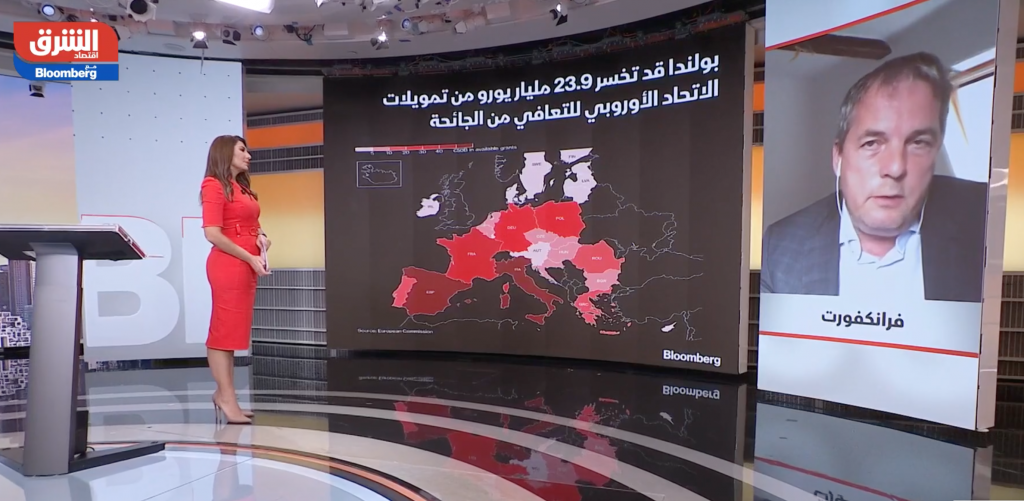In this interview with Maya Hojeij from Asharq Business Bloomberg, Christof Rühl, member of the Advisory Board of Crystol Energy and a Senior Fellow at the Center on Global Energy Policy at Columbia University, discussed Poland’s current status in the European Union, after the latest clash over the rule of law between the two sides.
Christof argued that Poland is unlikely to follow the same steps as the United Kingdom in exiting the EU as it is not easy to do so. However, Poland is facing some internal problems including the clash between Polish and EU law on key areas. The situation won’t lead to a “Polexit”, but key EU politicians undermined this issue and should give it more importance in the future.
On the political level, the EU is based on a group of countries sharing common principles, which are clearly stated in the EU’s constitution. Poland agreed on these principles when it became a member and, thus, any breach from its side will hinder the benefits that each EU member receives.
On the economic level, Poland, having a relatively small economy, will be the biggest loser as it will lose access to the EU market. Poland has a structurally old economy that relies on industry, uses coal for power generation, and doesn’t create enough job opportunities for its citizens. Therefore, the Polish economy needs structural changes and the support of the EU comes as a prerequisite for these changes to take place.
Christof concluded that Brexit largely differs from Polexit (in case it happens). The United Kingdom has a strong alliance with the US, where both countries share the same language and have strong economic and cultural partnerships, and already has an independent currency from the EU, being the British pound. Poland, in contrast, has a fragile relationship with Russia, due to a long history of wars and occupations, thus it is not logical to assume that a good relationship between both countries will suddenly emerge. Additionally, Poland doesn’t have an independent currency, and combining all of the above factors will leave little room for the country to maneuver between various economic powers.









